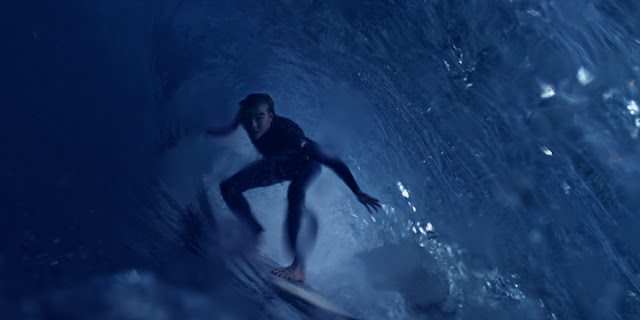Captain Phillips - Dir. Paul Greengrass
After his cargo ship is boarded by Somali pirates, Captain Richard Phillips (Tom Hanks) enters into a battle of bravado and patience with the pirate captain Muse (Barkhad Abdi). Phillips wants to protect his crew, but Muse isn't leaving until his pockets are filled with riches.
It should come as no surprise to hear that a new Paul Greengrass film is nail-bitingly tense. The tension builds from the moment Hanks' Captain Phillips lands in Oman (after a brief setup back in the USA, more on that later) and steps on board the Maersk Alabama. Whilst the action may never reach the heights of the frantic Tangier chase in The Bourne Ultimatum or the destructive car chase at the end of The Bourne Supremacy, the sense of jeopardy never lets up. Even in the film's quieter moments, there's an ever present restlessness that gives greater relevance to every word that Phillips chooses to utter.
What makes Captain Phillips an outstanding film, rather than just a very good film, is the way it draws parallels between Captain Phillips and the Somali pirates. Greengrass never makes the mistake of suggesting that their situations are directly comparable. Both Phillips and Muse are just doing the job that they have been given. Both would prefer to be doing something less dangerous, but this is what they have to do. In the opening of the film, Phillips drives to the airport with his wife (Catherine Keener). On the way, Phillips talks about how it is going to be tough for their children to get jobs due to the greater competition for each place in the modern world. Merely being good at something is no longer enough, you have to standout from the ever growing crowd. This scene's brevity and blunt approach is a jarring way to begin the film but it does prove to be important as the film continues.
(Some spoilers in the next paragraphs)
This pressure to be exceptional is one of the film's main themes. Phillips has to risk more than he should in order to save his crew. Muse and his crew manage to board the enormous cargo ship with little more than a small boat and a ladder. Yet Muse needs more than a sense of pride, he needs to return to Somalia with money and items of great value. In one of the film's pivotal scenes, Phillips offers Muse the $30,000 that is in the ship's safe providing that the Somalis leave in the lifeboat. Muse has a clear route to safety, but he cannot take it as $30,000 is not enough. Instead he takes the ultimately futile decision to take Captain Phillips as a hostage in the lifeboat.
At this point, the film sets up a battle for Captain Phillips between two mismatched opponents. In the First World corner, you have the might of the US Navy; in the Third World corner, you have four men and a boat. There's no fairy tale ending here. There's an almost tragic nature to the pathetic manner in which the situation is resolved. When faced with the might of the US Navy, Muse and his crew have no way out. Their bravery is admirable, but it counts for nothing if you don't have the resources to support it. Yet in those final moments, Captain Phillips is just as helpless as the pirates; he can do nothing to affect his fate. They have reached the point where their courage and determination are cancelling out each other. Ultimately, it will always be the imbalance in the global economy which separates the winners from the losers.
Greengrass has come under a lot of criticism in the past for his use of "shaky-cam" techniques in his films. Personally, I've never had a problem with these techniques and therefore never understood the criticisms. The camerawork in Captain Phillips is brilliant; cinematographer Barry Ackroyd brings the sense of urgency that the story requires to every scene. It's always been easy to differentiate between a Paul Greengrass' film and an imitation of a Paul Greengrass film; Captain Phillips is no different.
There are two towering central performances at the heart of Captain Phillips. The first comes from Tom Hanks who gives one of his best performances as the titular Phillips. His character isn't always likable, but Hanks displays a quiet strength and determination whilst in this terrifying situation. The act finally drops once the situation is resolved and Hanks gets to demonstrate a side of Phillips that had gone previously unseen. It's not only a powerful scene, but it generates a greater appreciation for the rest of the performance.







Comments
Post a Comment